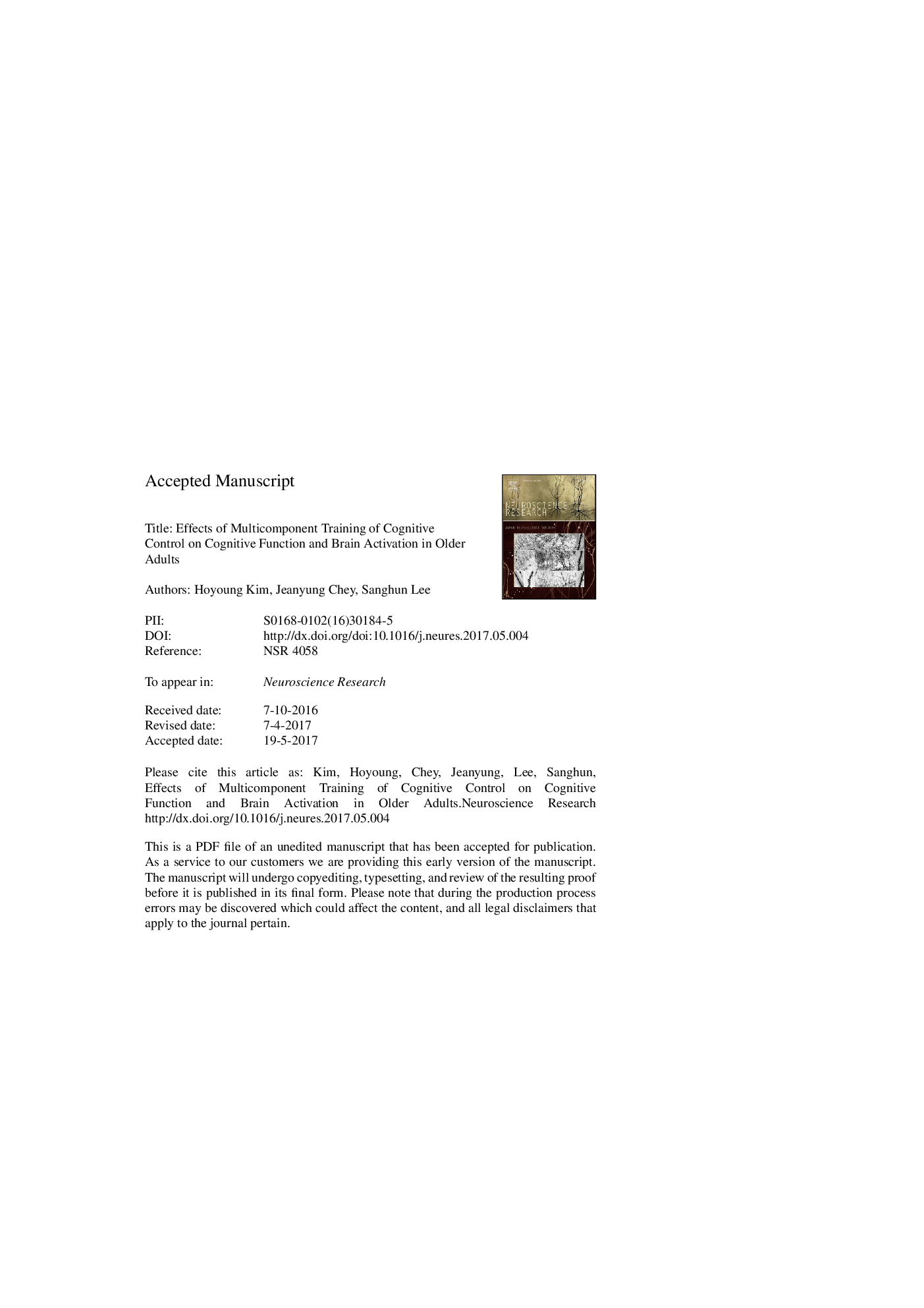| Article ID | Journal | Published Year | Pages | File Type |
|---|---|---|---|---|
| 8842150 | Neuroscience Research | 2017 | 40 Pages |
Abstract
The aim of this study was to investigate the changes in cognitive functions and brain activation after multicomponent training of cognitive control in non-demented older adults, utilizing neuropsychological tests and fMRI. We developed and implemented a computerized Multicomponent Training of Cognitive Control (MTCC), characterized by task variability and adaptive procedures, in order to maximize training effects in cognitive control and transfer to other cognitive domains. Twenty-seven community-dwelling adults, aged 64-77 years, without any history of neurological or psychiatric problems, participated in this study (14 in the training group and 13 in the control group). The MTCC was administered to the participants assigned to the training group for 8 weeks, while those in the control group received no training. Neuropsychological tests and fMRI were administered prior to and after the training. Trained participants showed improvements in cognitive control, recognition memory and general cognitive functioning. Furthermore, the MTCC led to an increased brain activation of the regions adjacent to the baseline cognitive control-related areas in the frontoparietal network. Future studies are necessary to confirm our hypothesis that MTCC improves cognitive functioning of healthy elderly individuals by expanding their frontoparietal network that is involved in cognitive control.
Related Topics
Life Sciences
Neuroscience
Neuroscience (General)
Authors
Hoyoung Kim, Jeanyung Chey, Sanghun Lee,
